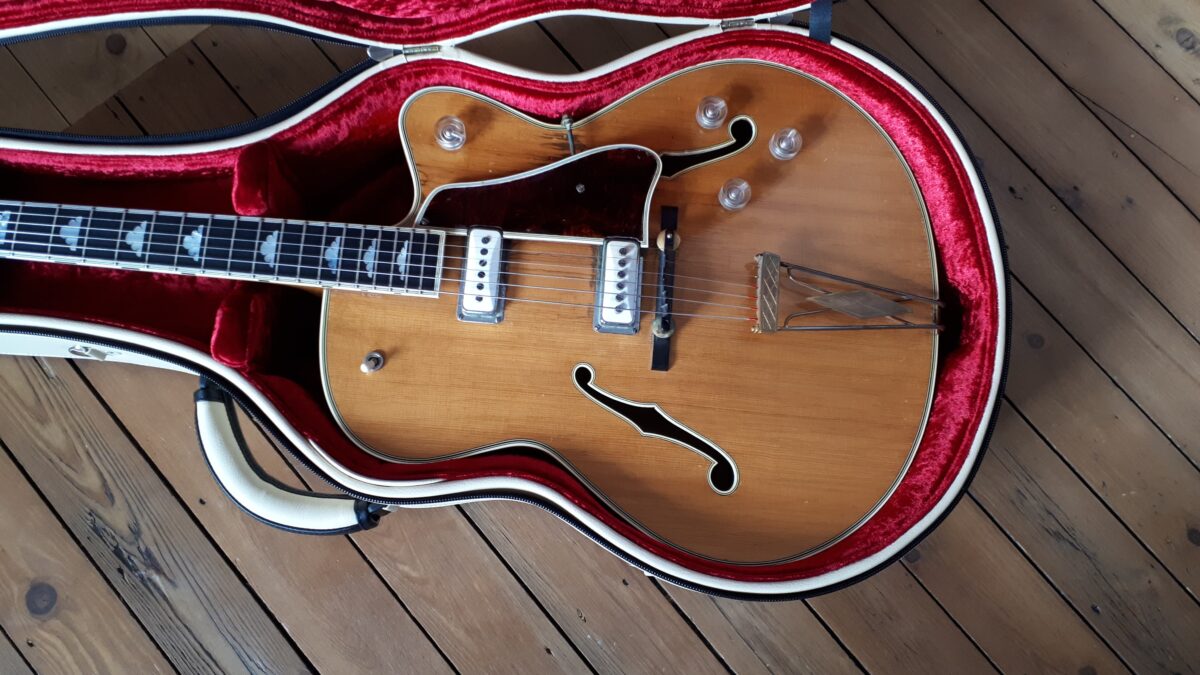A quality electric guitar case protects your instrument and keeps it in great condition for years. However, many factors, such as durability, portability, style, and cost, come into play when choosing between leather and fabric.
Durability and Protection
Regarding protecting your instrument, leather guitar cases are highly durable. They’re made from thick material that can withstand scratches, impacts, and wear. Leather offers a tough outer shell, ensuring your guitar remains safe during transportation or storage. Many musicians prefer a guitar case for electric guitar in leather because it gives them peace of mind regarding protection. However, leather cases are not entirely immune to wear and tear. Over time, they can show scuffs and marks, though these are often minor.
Fabric cases, on the other hand, are known for being lightweight yet surprisingly protective. Modern fabric guitar electric case designs often include reinforced padding or foam interiors, which help absorb shocks and prevent damage. While not as sturdy as leather, fabric cases offer solid protection for most everyday uses. For those who only need a case for occasional travel or light storage, fabric can be a practical choice. If your guitar needs heavy-duty protection, leather wins, but the fabric works well for lighter demands.
Weight and Portability
Weight is important when choosing a guitar case, especially if you travel frequently. Due to their dense material and solid construction, leather cases are significantly heavier. This makes them more challenging, especially for musicians who travel with additional gear. For professionals who play gigs or attend sessions, the added weight of a leather electric guitar hard case might not always be ideal. However, some musicians still prefer leather for its unmatched durability and professional look.
Fabric cases, on the other hand, are much lighter and easier to handle. They’re great for students, casual players, or anyone who prioritizes portability. If you need a case that’s easy to carry and doesn’t add unnecessary weight to your load, a fabric case is likely the better choice. This lighter option can save you both time and effort for extended commutes or frequent travel. Many musicians choose fabric electric bass guitar case designs for their everyday needs, as they combine practicality with comfort.
Style and Aesthetic Appeal
If style is a priority, leather guitar cases often stand out. They come in sleek, polished designs with a professional and refined look. Leather also ages gracefully, which can add to its charm over time. Whether heading to a gig or displaying your instrument at home, an electric leather guitar case adds a touch of sophistication. However, these cases are typically limited to neutral or classic color options like black or brown, which may not suit everyone’s preferences.
Fabric cases, by contrast, offer a wider variety of styles and colors. They’re available in bold designs, patterns, and vibrant shades, making them a fun choice for musicians who want to express their personality. Whether you prefer something subtle or eye-catching, fabric cases have more customization options. While they may lack the timeless elegance of leather, fabric cases allow you to choose a look that matches your unique style. A fabric electric guitar hard case might be perfect for younger musicians or those looking for something more playful.
Maintenance and Care
Leather cases require regular care to keep them looking their best. Cleaning them with specialized leather products and avoiding prolonged exposure to moisture can help maintain their appearance and durability. Leather can dry out or crack over time without proper care, which may reduce its protective capabilities. This makes a leather electric bass guitar case better suited for those willing to invest time into its upkeep. If you don’t mind a bit of extra effort, a leather case can last for decades.
Fabric cases are much easier to maintain. They can be cleaned with a damp cloth or, in some cases, machine-washed (depending on the manufacturer’s instructions). Fabric cases are also more resistant to stains and scratches, making them ideal for players who prefer a low-maintenance option. For busy musicians or those who need a practical solution, fabric cases offer convenience without sacrificing quality. However, they might not hold up as well as leather over extended periods of heavy use.
Cost Considerations
Leather cases are typically more expensive than their fabric counterparts. The cost reflects the premium materials and craftsmanship involved in making these cases. For professional musicians or those who see their instrument as a long-term investment, a leather electric guitar hard case can be a worthwhile expense. These cases provide excellent value for those prioritizing durability and style over upfront costs. However, the higher price point might not always be justified for beginners or casual players.
Fabric cases are more budget-friendly, making them accessible to a wider range of players. Despite their lower price, many fabric cases offer good protection and functionality. The fabric is a solid choice if you’re looking for an affordable guitar case electric without compromising too much on quality. For musicians on a budget or those who want a lightweight option, fabric cases provide excellent value.
Which Case is Best for You?
The choice between leather and fabric ultimately depends on your needs and priorities. If you’re a professional musician looking for a durable, stylish case for long-term use, a leather electric bass guitar case may be the better option. It offers excellent protection and a timeless look, though it requires more care and comes at a higher cost.
A fabric case is a practical and versatile choice for students, casual players, or those who value portability and affordability. With options for lightweight designs and colorful styles, fabric cases suit everyday use without breaking the bank. Whether you choose leather or fabric, investing in a quality electric guitar case ensures your instrument stays safe and secure.


